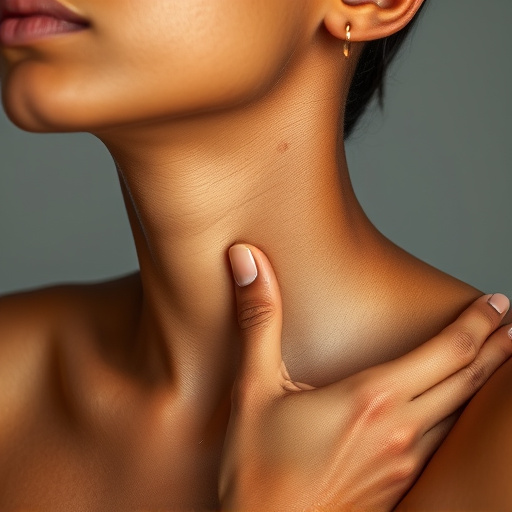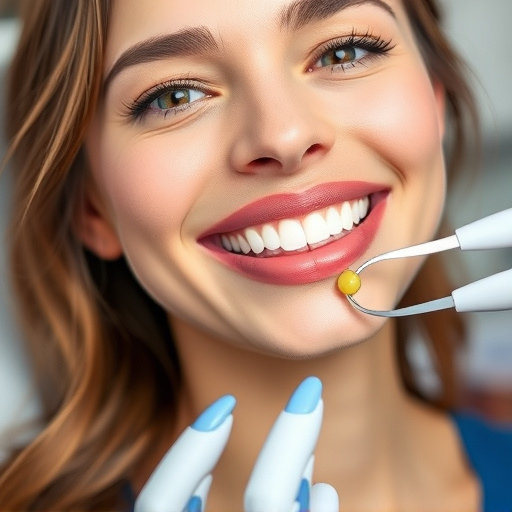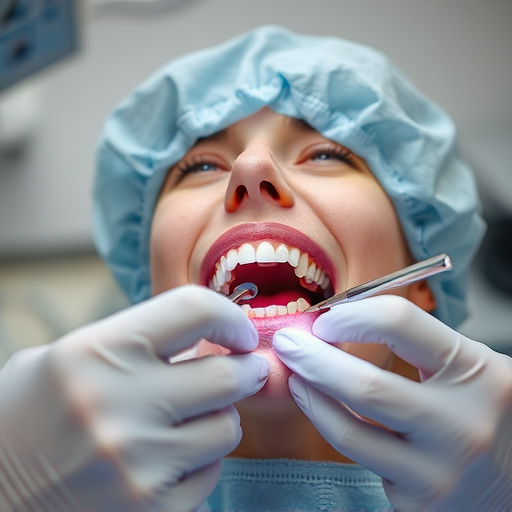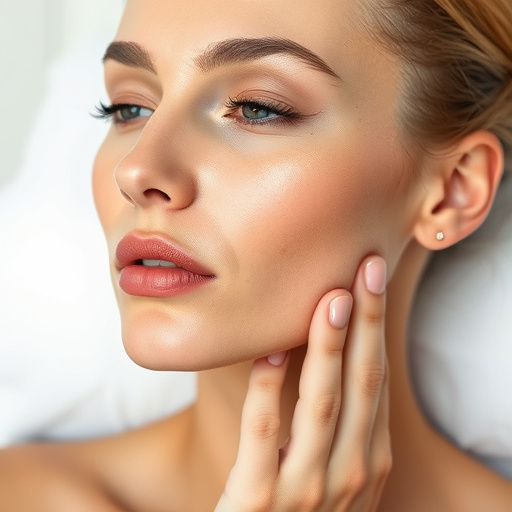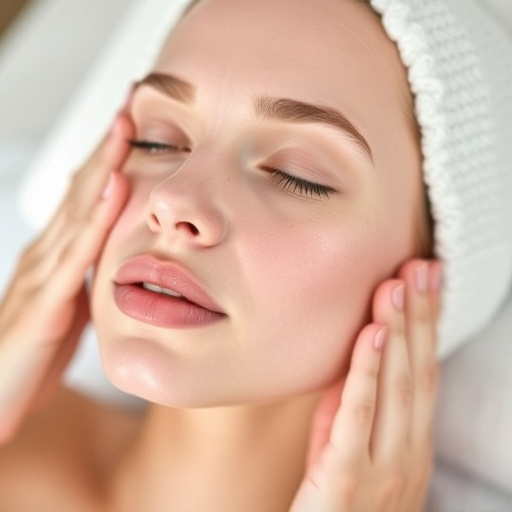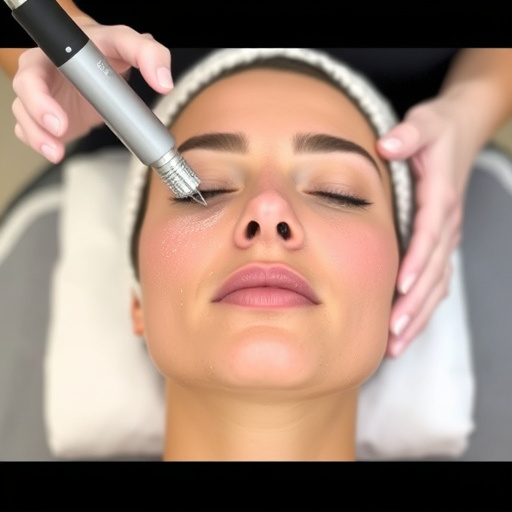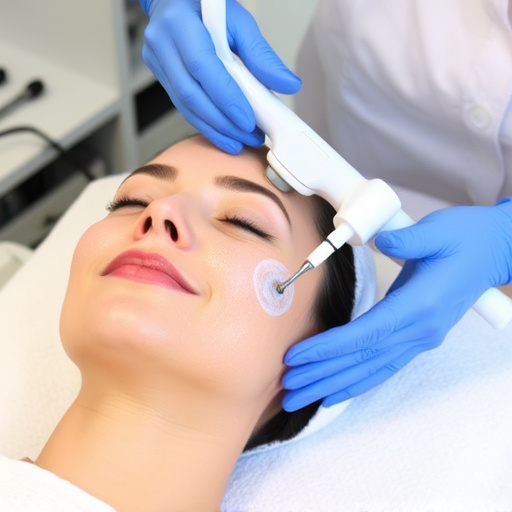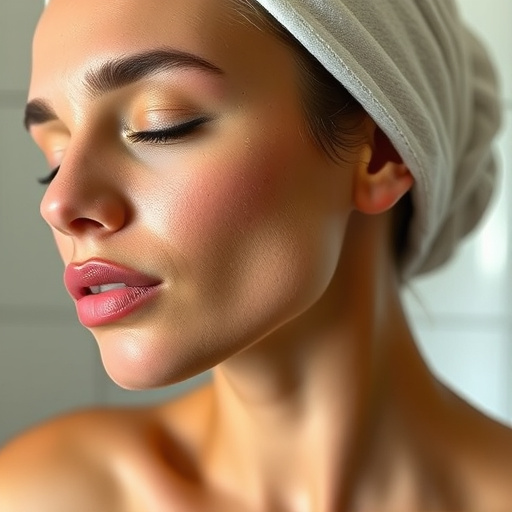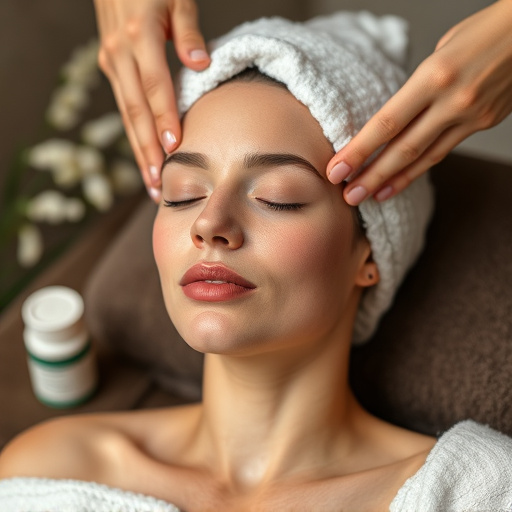A balanced diet is essential for hormonal acne treatment. High-glycemic foods, processed items, and unhealthy fats trigger inflammation and hormonal spikes, worsening acne. Conversely, whole foods like fruits, vegetables, lean proteins, and healthy fats aid in hormone regulation and reduce inflammation. Combining a nutritious diet with medical spa services like facials and wrinkle reduction treatments offers a comprehensive approach to achieving clear, balanced skin. Key nutrients include antioxidants, vitamins (like D and zinc), and minerals found in berries, leafy greens, avocados, and fatty fish.
Hormonal acne can be a frustrating and complex condition to manage, but understanding the connection between your diet and hormones may offer valuable insights into improving treatment results. This article explores how nutrition plays a critical role in supporting hormonal acne treatment and provides practical guidance on creating a balanced diet for optimal management. By delving into these key areas, we aim to empower individuals with effective strategies to combat hormonal acne naturally.
- Understanding the Connection Between Diet and Hormonal Acne
- The Role of Nutrition in Supporting Hormonal Acne Treatment
- Creating a Balanced Diet for Optimal Acne Management and Hormone Regulation
Understanding the Connection Between Diet and Hormonal Acne
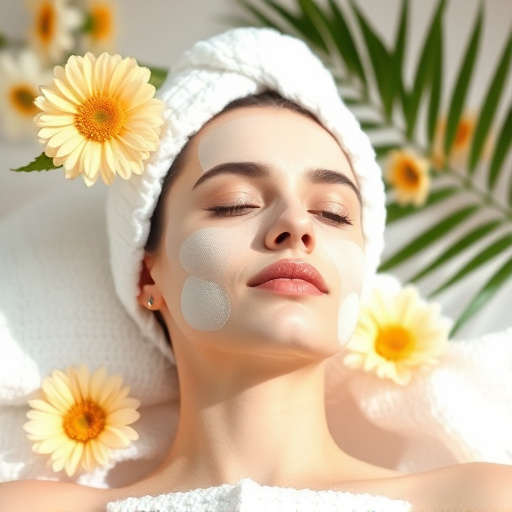
Understanding the connection between diet and hormonal acne is key to effective treatment. Diet plays a significant role in maintaining overall skin health, including managing hormonal imbalances that contribute to acne. Certain foods can trigger inflammation and hormonal spikes, exacerbating existing acne or preventing successful hormonal acne treatment. For instance, high-glycemic index foods can lead to rapid blood sugar spikes, stimulating the release of insulin and androgen hormones, known acne triggers.
A diet rich in processed foods, refined sugars, and unhealthy fats may increase the risk of hormonal acne. Conversely, a balanced diet focusing on whole foods like fruits, vegetables, lean proteins, and healthy fats can help regulate hormone levels and promote clear, healthy skin. Incorporating anti-inflammatory foods such as berries, nuts, and leafy greens into your diet alongside tailored treatments like chemical peels or customized facials can offer a comprehensive approach to managing hormonal acne effectively.
The Role of Nutrition in Supporting Hormonal Acne Treatment
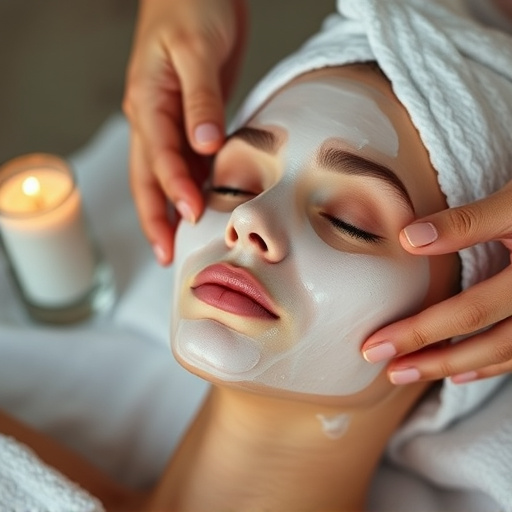
Proper nutrition plays a vital role in supporting hormonal acne treatment efforts. The foods we consume can significantly influence our hormonal balance and skin health. A diet rich in antioxidants, vitamins, and minerals helps reduce inflammation and regulates oil production, which are key factors in managing hormonal acne. Foods like berries, leafy greens, and healthy fats can contribute to a clearer complexion by promoting overall skin well-being.
In addition to dietary choices, incorporating tailored medical spa services, such as customized facials and wrinkle reduction treatments, can further enhance the effectiveness of hormonal acne treatment. These professional procedures, combined with a nutritious diet, offer a comprehensive approach to achieving clear and balanced skin.
Creating a Balanced Diet for Optimal Acne Management and Hormone Regulation
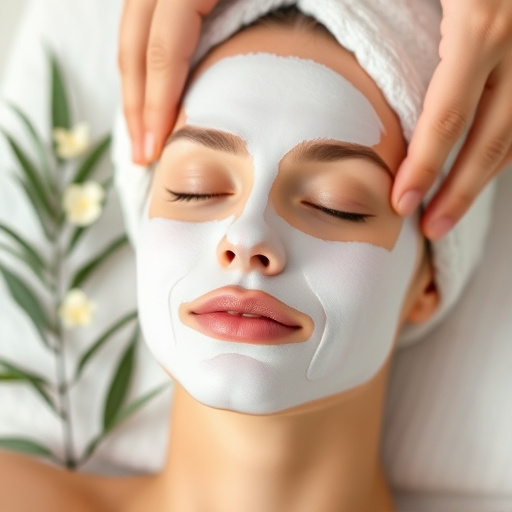
Creating a balanced diet is an essential component of managing hormonal acne effectively. This involves incorporating a variety of whole foods rich in nutrients that support skin health and hormone regulation. Foods high in antioxidants, like berries, leafy greens, and nuts, can help reduce inflammation associated with acne. Additionally, incorporating healthy fats from avocados, fatty fish, and olive oil can benefit the skin by promoting moisture retention and supporting sebum production, which is crucial for maintaining pores and preventing clogging.
A balanced diet also ensures adequate intake of vitamins and minerals vital for both hormonal balance and skincare. For instance, vitamin D, found in fatty fish and fortified dairy alternatives, plays a role in oil production regulation. Zinc, abundant in foods like oysters, beans, and nuts, is essential for maintaining skin integrity and supporting the body’s natural healing processes. By focusing on these dietary components, individuals can complement their hormonal acne treatment with professional skincare routines and pore refinement facial treatments for holistic, effective results.
In conclusion, understanding the intricate link between diet and hormonal acne treatment is paramount. By adopting a balanced diet rich in nutrients, you can significantly support your body’s natural healing process and hormone regulation. This holistic approach, combining proper nutrition with targeted treatments, offers the best chance for managing hormonal acne effectively and achieving long-lasting clarity. Remember, what you eat matters, and making informed dietary choices can be a game-changer in your journey towards clearer skin and improved overall health.
